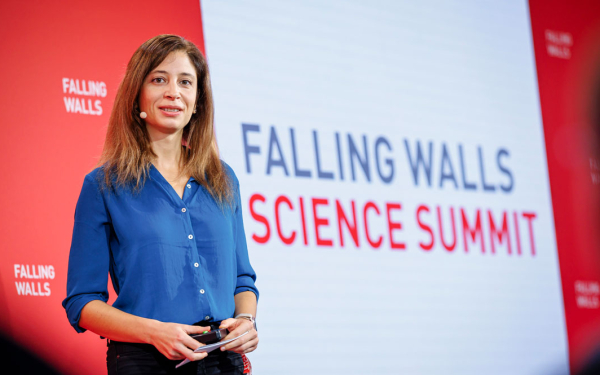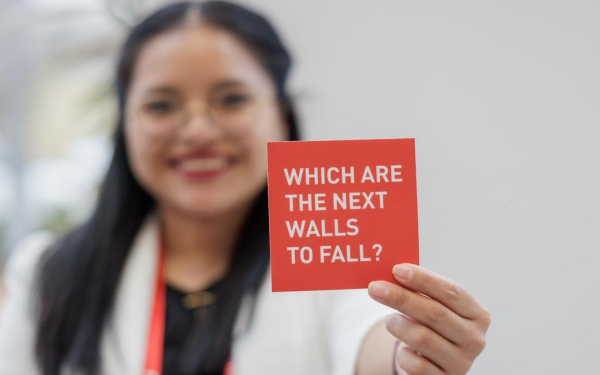Academic freedom under pressure: How European science must arm itself against attacks
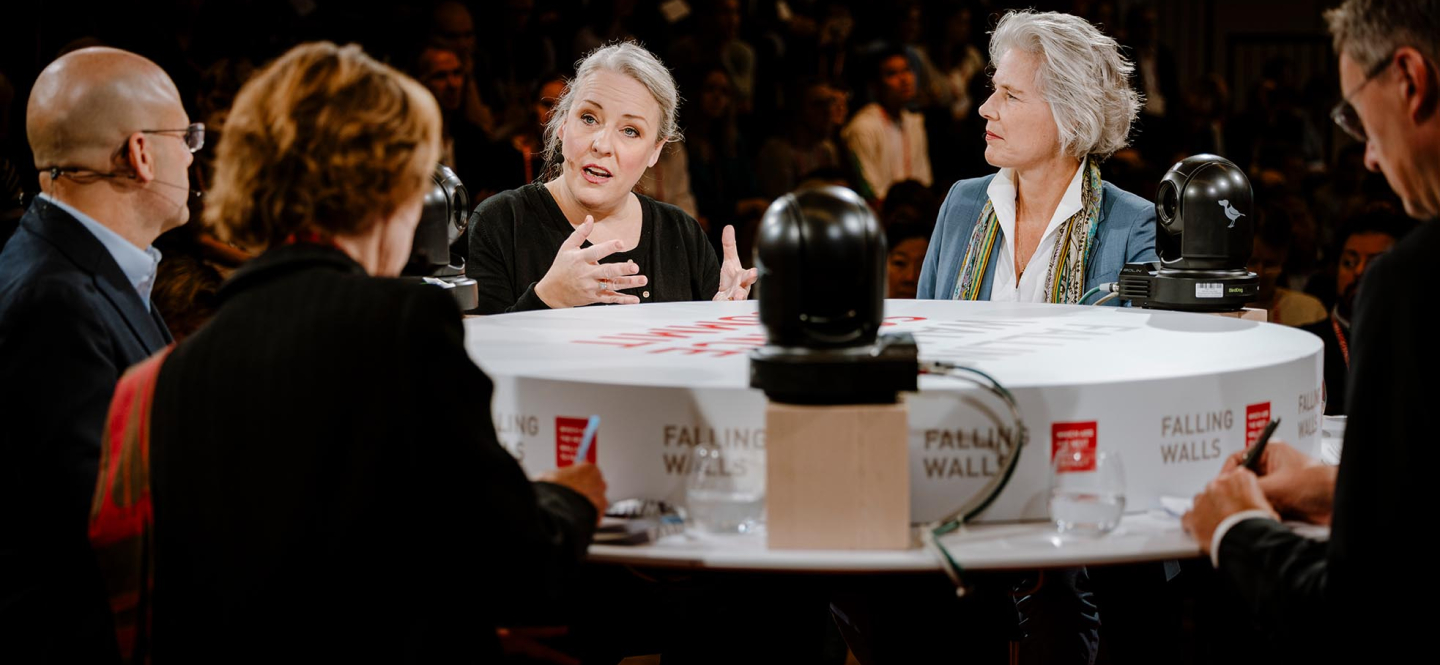
Falling Walls Foundation
Anna-Sara Lind (left) and Eva-Inés Obergfell during the discussion on "Academia under Attack".
At the Falling Walls Science Summit 2025, leading representatives of the scientific community discussed threats to academic freedom – and how research institutions can strengthen their resilience.
It quickly became clear during the plenary table discussion 'Academia under attack – Action against anti-democratic threats' that attacks on science are no longer a matter of 'exaggerated alarmism'. Patrick Cramer, President of the Max Planck Society, referred to the situation in the USA, where budget cuts, political pressure and intimidation are posing a massive threat to academic autonomy. He emphasised that Europe should not consider itself safe from this and warned explicitly against growing nationalist forces in several European countries.
At the same time, the discussion, which was moderated by Jens Martin Gurr, curator of the Volkswagen Foundation and professor at the University of Duisburg-Essen, highlighted the close connection between academic freedom, democracy and the rule of law – a foundation that is increasingly eroding when political decision-makers delegitimise science or restrict international cooperation.
Funding, alliances and early action
Harvard professor Daniel Ziblatt, who is also director of the Department of Transformations of Democracy at the Berlin Social Science Centre, focused in particular on structural issues. He advocated a more pluralistic funding system that uses parallel public and private sources of financing. Only in this way can a political majority be prevented from putting pressure on an entire scientific system with a single budgetary lever.
Ziblatt also emphasised the importance of 'social alliances': universities should work more closely with the media, schools and civil society organisations to gain support before attacks take place. 'You can't wait until the attack begins,' he said. 'Then you quickly find yourself alone.'
Anna-Sara Lind, head of the Swedish National Inquiry into Academic Freedom and professor at Uppsala University, also emphasised the central importance of internal and external education: researchers need to know their rights and obligations within the framework of academic freedom, and political decision-makers need to better understand what universities do.
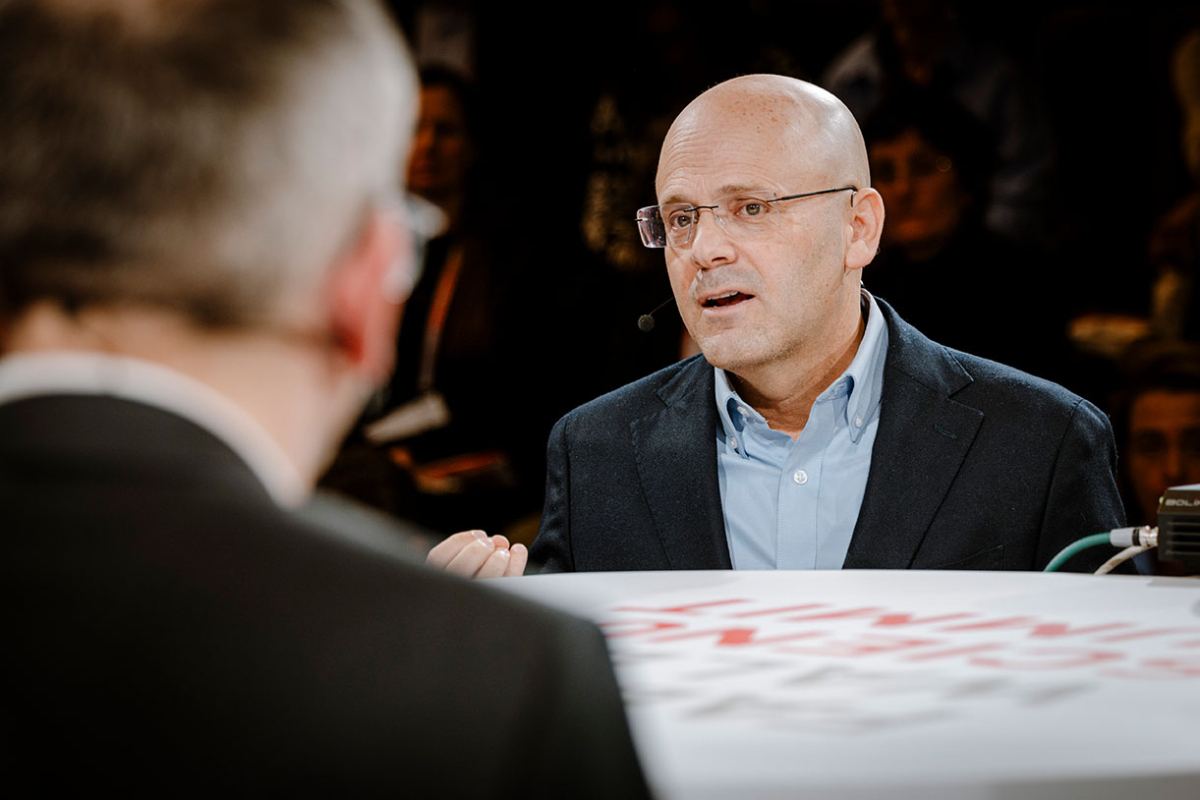
Daniel Ziblatt
Scientific culture as a protective wall
Another key issue was addressed by Eva-Inés Obergfell, Rector of Leipzig University: without a robust scientific culture, even a strong legal framework is of little use. She called for compulsory modules on democratic education, media literacy and critical thinking for students and staff. Only in this way can intolerant or anti-democratic dynamics in everyday university life be identified and countered at an early stage.
Obergfell also warned against defining universities primarily in terms of efficiency criteria or 'impact' metrics. This would weaken the role of the university as a place of intellectual and social education – and thus also its ability to protect democratic values.
From a technical perspective, it was emphasised that a culture of open debate, plurality and scientific integrity are central prerequisites for science to remain resilient.
Freedom instead of mountains of paperwork
Several panellists, led by Patrick Cramer and Maria Leptin, President of the European Research Council (ERC), emphasised the need to reduce bureaucracy. Cramer called for a shift towards a 'system of trust' and criticised unnecessary regulations for slowing down research and making democratic systems appear incapable of action.
Leptin emphasised that the growing administrative burden takes away the time researchers need for creative and risky research. Competitive procedures are accepted, but the multitude of applications, reports and evaluation rounds stifle scientific freedom. Freedom means 'no endless conditions that have nothing to do with science,' she said.
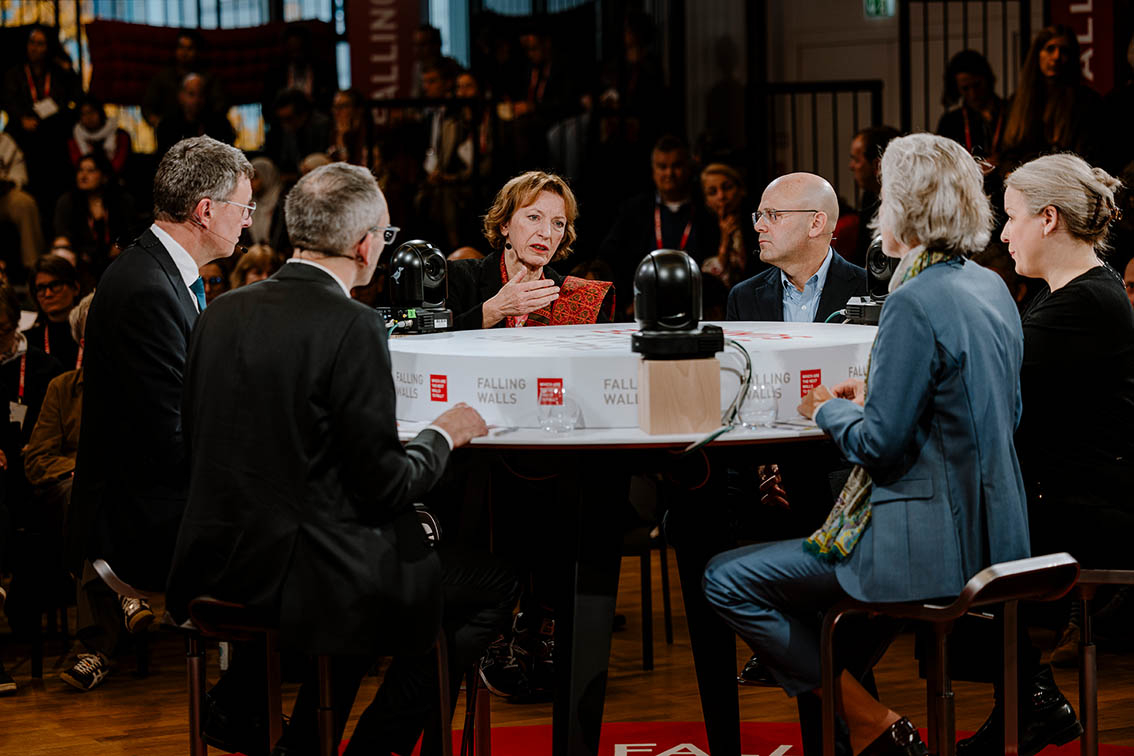
Maria Leptin (left)
Self-criticism and targets for attack
Obergfell and Lind in particular responded to the question of whether academic discourse itself unintentionally provides ammunition for populist narratives. Obergfell warned that relativism or misguided neutrality could easily be abused – for example, when universities shy away from taking a clear stand against disinformation or misanthropic positions. Lind pointed out that science appears 'old-fashioned' in structural terms – it needs time, differentiation and debate. At the same time, she said, this is more important today than ever before. She emphasised the responsibility of science to classify research results in an understandable way and to remain in dialogue instead of disappearing after publication.
Maria Leptin added that internal debates – for example, on reproducibility – could also be politically distorted. Discussion is necessary, she said, but must be conducted in a scientifically sound manner.
What needs to be done now
At the end of the discussion, clear positions emerged. Patrick Cramer called on Europe to 'wake up' and actively assume its global responsibility in science. Maria Leptin said, 'We must be activists in protecting scientific freedom.' Daniel Ziblatt reminded the audience of the need for collective action: 'We must stand together, otherwise we will be attacked individually.'
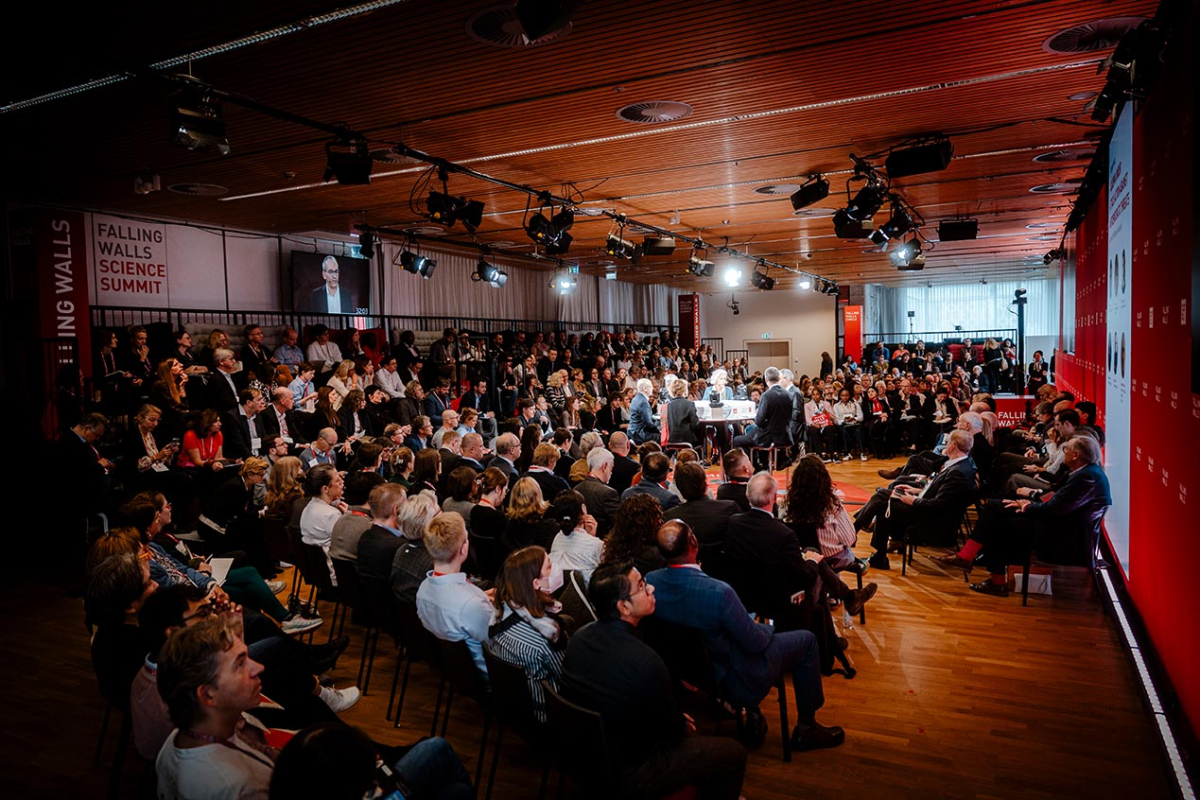
The audience was listening to an interesting discussion.
Eva-Inés Obergfell emphasised how important it is to make scientific methods transparent and to win over political decision-makers as partners. And Anna-Sara Lind added that more research and more perspectives are needed to show how academic freedom can become more resilient.
The joint conclusion was that protecting academic freedom is not a foregone conclusion – and not a task that academia can accomplish alone. It is a project for society as a whole.
Artificial intelligence supported research and text creation.
Video recordings of all plenary tables are available on Youtube. (Academia under Attack from 04:09:00 min)verfügbar.

